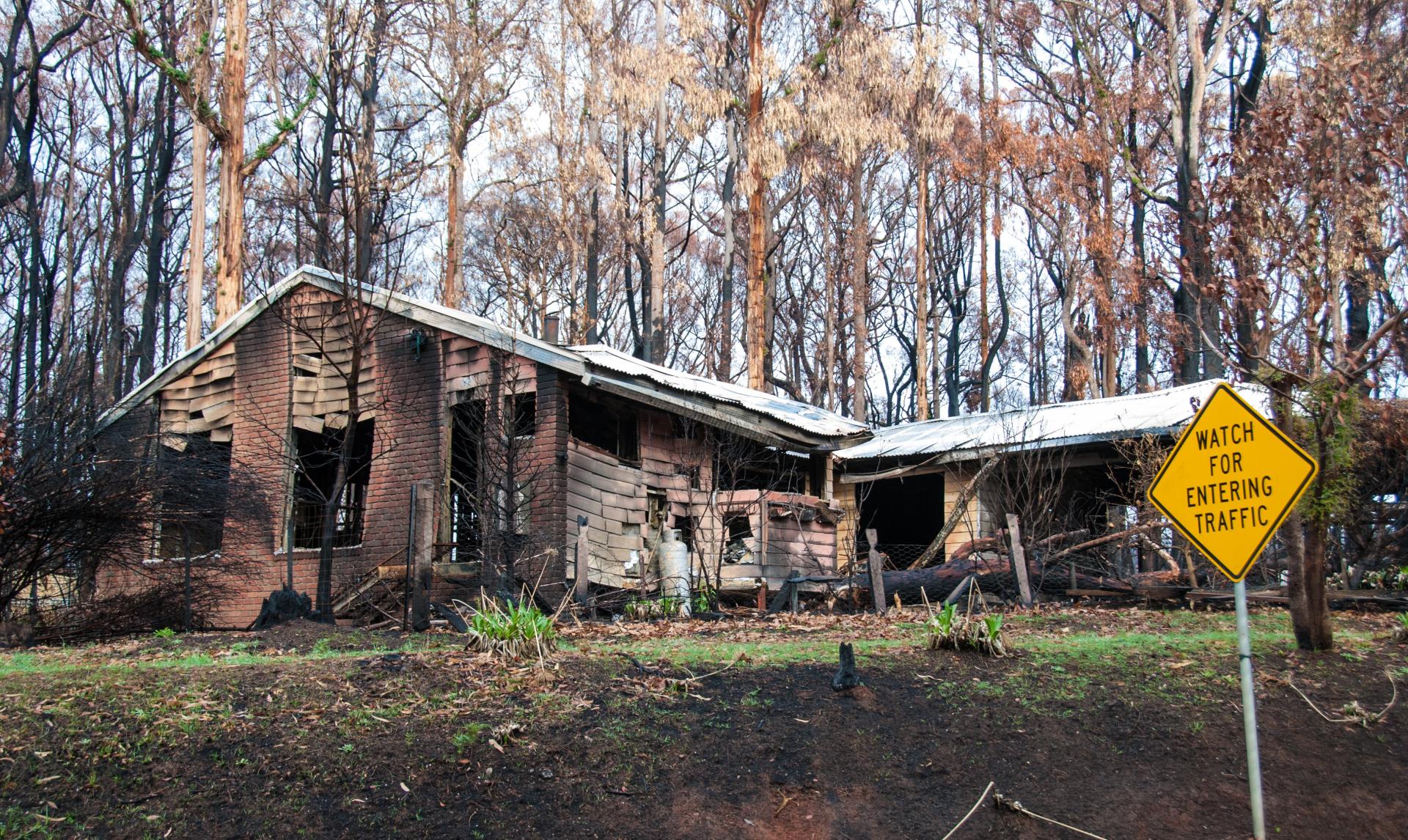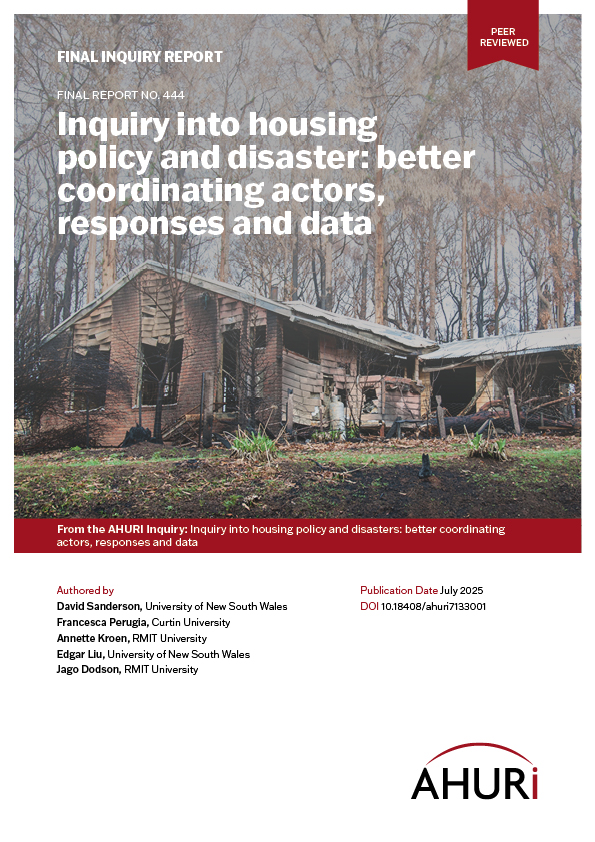
When disasters strike, local governments are on the front line. This role needs stronger support.
29 Jul 2025
When disasters strike, local governments play a crucial role in supporting affected communities, as they best understand the people and environments that have been harmed.
As climate related disasters become more prevalent, new AHURI research argues that local governments should add a fourth ‘R’ for ‘resilience’, in addition to their traditional ‘rates, roads and rubbish’ remit.
‘This resilience remit is about improving local ownership of decisions to manage how disaster affects local communities,’ says lead author of the research, Professor David Sanderson from the University of New South Wales.
‘The key role of local government is not only when disaster hits - it’s also about preventing and mitigating disasters before they occur, and managing the long recovery process after. After all, they are best placed to achieve this, given the right support.’
But to fulfil this role, they need better support from state and Commonwealth governments. ‘Local governments already do the best they can to support their communities to prepare for, prevent and respond to disasters. However, this role is hindered by a lack of resources, lack of investment and a lack of political authority,’ says Professor Sanderson. ‘The role is also hindered by a lack of reliable data.’
Role of local government starts well before disasters strike
Preparing for disasters is not seen as core business for many local governments. However, having a suite of plans in place before such an event makes it much easier for local governments to allocate and direct resources when the event occurs.
‘It starts with having accurate data of where disasters might happen and what their impact could be,’ says Professor Sanderson.
‘From this data local governments can identify planning zones where housing should and shouldn’t be built, or what levels of building protection are needed if building is allowed in those at-risk areas.’
Forward planning also means local governments know where and what type of any temporary accommodation should be built. It means construction can start very quickly to house displaced residents if necessary.
Local government actions after disasters need to be supported by good prior policy decisions
When the immediate threat from fire, flood, windstorm or other disaster has passed, local governments can find themselves overloaded, particularly if there aren’t policies in place that have been prioritised before the disaster.
Some key policies local governments need to consider include:
- having appropriate buyback schemes where housing in risky environments is bought by government and removed or demolished. These schemes need to be transparent, fair and effectively targetted to avoid harming communities
- only building temporary housing villages as a last resort. If they are used, there must be a plan for reusing them after recovery that benefits the community
- having planning rules that support and encourage ‘build back better’. This means that after disasters, houses are rebuilt so that they are more resilient to future flood and fire hazards. This might include building homes that are raised above flood levels or that use fire-resistant building materials.
State, territory and federal governments have key support roles
State, territory and federal governments can invest in better prepared communities and better recovery by building local government political authority and capacity in all aspects of disaster management. They can also improve other important aspects of disaster management, such as leading coordinated decisions on data management and leading research and evaluation of disaster responses that can support local governments in their planning, preparation and policymaking.
Having trusted data sources is essential to implementing accurate policies
‘Our research shows that having accurate and up-to-date data about disaster hazards is crucial for making effective decisions and managing risks,’ says Professor Sanderson. ‘However, there is a problem with a lack of data standards, availability and quality.’
There is also a lack of trust in the available data, which can make important decisions fraught, such as where new development is allowed.
‘Having an agreed standard of data that is kept up-to-date and always available would make planning decisions for both local and state and territory governments more transparent and accurate, particularly in the face of our changing climate,’ says Professor Sanderson.
The research, ‘Inquiry into housing policy and disaster: better coordinating actors, responses and data’, was undertaken for AHURI by researchers from UNSW, Curtin University and RMIT University.

